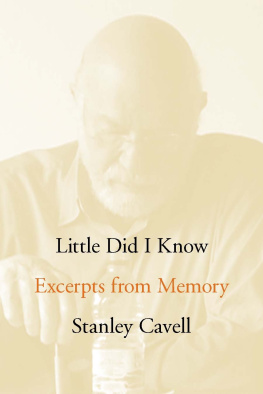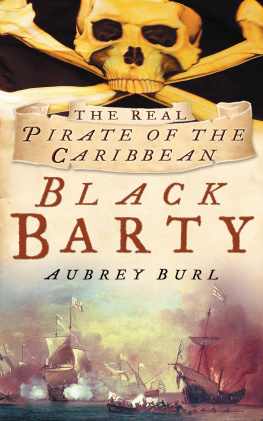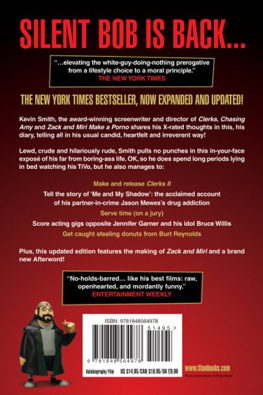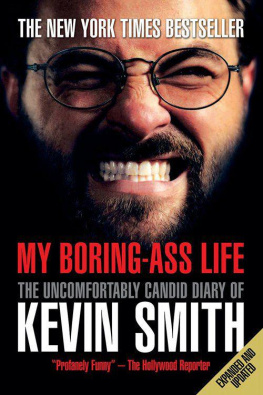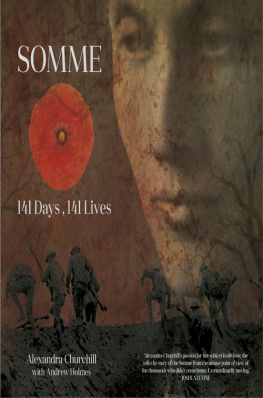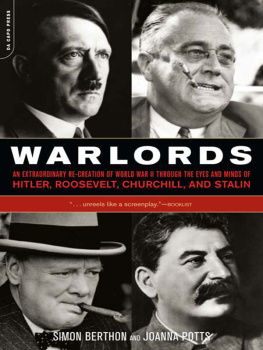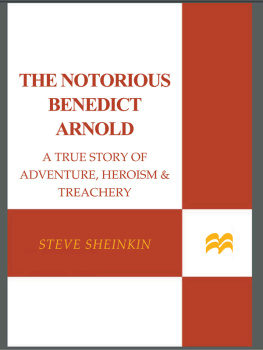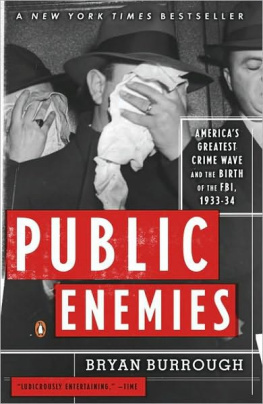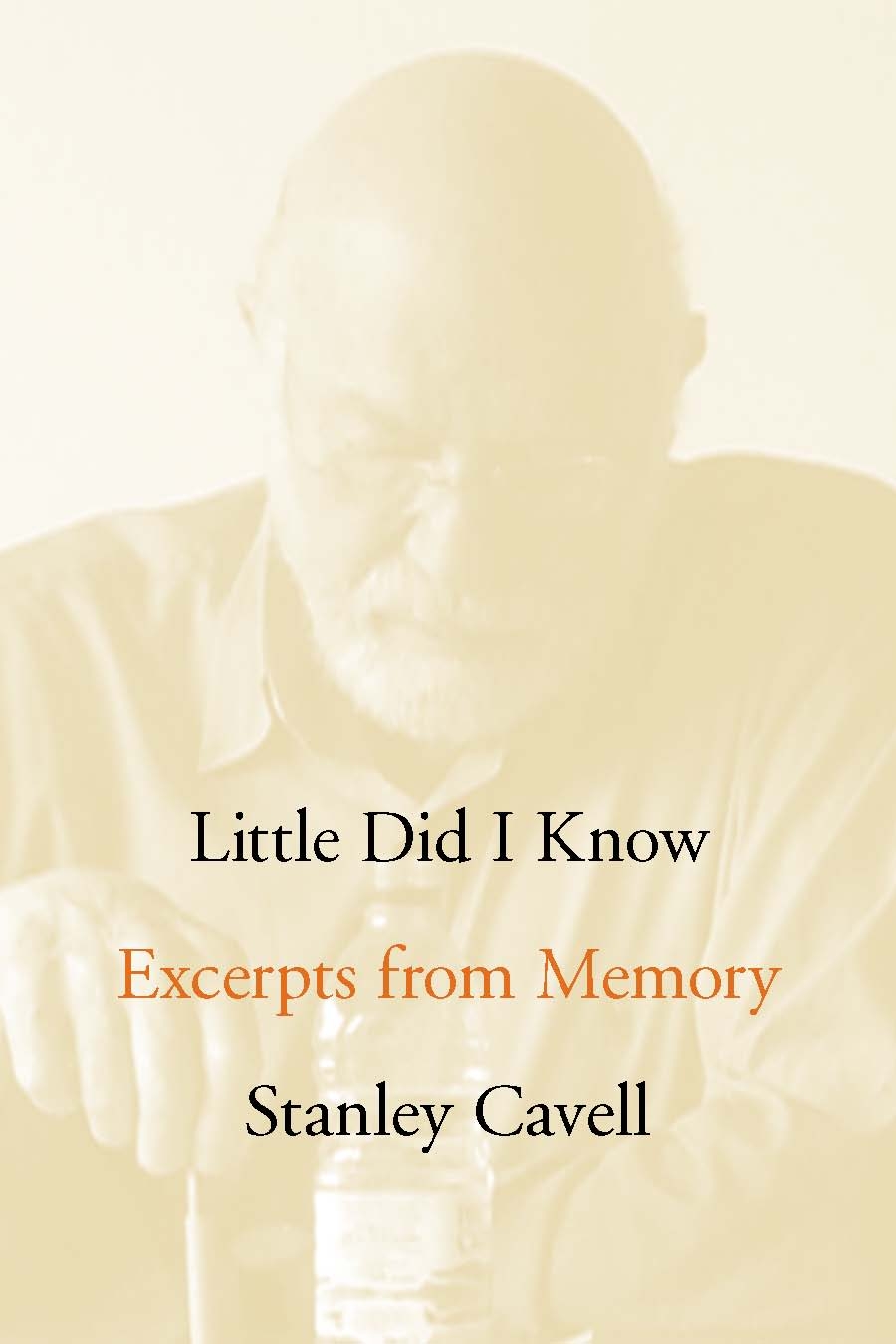I am indebted for the end stages of editing this memoir to the tact and careful work of my research assistant, Byron Davies, and to Cathleen, who continues to know the words. I am also grateful to the following people who helped in many different ways to complete this enterprise: Norton Batkin, Sarah Browne, Jay Cantor, Hent de Vries, Sandra Laugier, Toril Moi, Susan Neiman, and Bill Rothman.
Cultural Memory in the Present
Andrew Herscher, Violence Taking Place: The Architecture of the Kosovo Conflict
Michael Fagenblat, A Covenant of Creatures: Levinass Philosophy of Judaism
Paul Patton, Deleuzian Concepts: Philosophy, Colonialization, Politics
Stefanos Geroulanos, An Atheism that Is Not Humanist Emerges in French Thought
Hans-Jrg Rheinberger, On Historicizing Epistemology: An Essay
Lambert Wiesing, Artificial Presence: Philosophical Studies in Image Theory
Freddie Rokem, Philosophers and Thespians: Thinking Performance and Performing Thoughts from Socrates to Benjamin
Jacob Taubes, From Cult to Culture , edited by Charlotte Fonrobert and Amir Engel
Roberto Esposito, Communitas: The Origin and Destiny of Community
Peter Hitchcock, The Long Space: Transnationalism and Postcolonial Form
Vilashini Cooppan, Worlds Within: National Narratives and Global Connections in Postcolonial Writing
Josef Frchtl, The Impertinent Self: A Heroic History of Modernity
Michael Rothberg, Multidirectional Memory: Remembering the Holocaust in the Age of Decolonization
Jacob Taubes, Occidental Eschatology
Jean-Franois Lyotard, Enthusiasm: The Kantian Critique of History
Frank Ankersmit, Ewa Domanska, and Hans Kellner, eds., Re-Figuring Hayden White
Stphane Moss, The Angel of History: Rosenzweig, Benjamin, Scholem
Ernst van Alphen, Mieke Bal, and Carel Smith, eds., The Rhetoric of Sincerity
Alexandre Lefebvre, The Image of the Law: Deleuze, Bergson, Spinoza
Samira Haj, Reconfiguring Islamic Tradition: Reform, Rationality, and Modernity
Diane Perpich, The Ethics of Emmanuel Levinas
July 2, 2003
The catheterization of my heart will no longer be postponed. My cardiologist announces that he has lost confidence in his understanding of my condition so far based on reports of what I surmise as symptoms of angina and of the noninvasive monitoring allowed by X-rays and by the angiograms produced in stress tests. We must actually look at what is going on inside the heart.
Even if I had not eight years ago officially retired from teaching, summer months for teachers are not ones in which routine obligations can serve to shape the days in which life is suspended until the hospital date for the procedure is settled and the time comes to pack a bag for an overnight stay. Apart from learning of the risks in the procedures actual performance, there are the frightening statistics (frightening even when reasonably favorable) that doctors are obliged to convey to you, not alone of problems incurred in or by the procedure itself, but those of its possible outcomes. In the instance of catheterization the possible outcomes are mainly three: one, that no further surgical intervention is necessary, so that either a change of diagnosis or of medication is in order; two, that instruments roughly of the sort involved in catheterization can be (re)inserted to open and to repair where necessary arterial blockage; three, that the blockage is severe enough, or located in such a way, that bypass surgery is required. (The possibility that nothing can be done was not voiced.) In a previous such period of awaiting surgery, a dozen years ago, I controlled or harnessed my anxiety by reading. I had found that I resisted the efforts of a novel to attract me from my world; I needed the absorption of labor rather than that of narrative. I discovered that reading a book by Vladimir Jankelevitch on the music of Debussy that I had discovered in Paris and brought back a few months earlier, meaning to read it at once (I was planning a set of three lectures, in the last of which the Debussy-Maeterlinck Pellas and Mlisande would play a pivotal role), effectively concentrated my attention, partly because of the beauty of the musical illustrations along with the very effort it required for my rusty musicianship to imagine the sounds of the illustrations unfamiliar to me that Jankelevitch includes in his text, partly because of the specificity and fascination of his words, and partly also because I was kept busy consulting a French dictionary for the evidently endless words in French that name, for example, the effects of sunlight and of clouds on moving water.
This time I am not inclined to house my anxiety as a secondary gain of reading, but rather by a departure in my writing, to begin learning whether I can write my way into and through the anxiety by telling the story of my life. (Or is it the other way aroundthat I am using the mortal threat of the procedure, and of what it may reveal, to justify my right to tell my story, in the way in which I wish to tell it? What could this meanmy story is surely mine to tell or not to tell according to my desire? But of course the story is not mine alone but eventually includes the lives of all who have been incorporated in mine.) I have formed such an intention many times in recent years, and there have been autobiographical moments in my writing from the beginning of the first essays I still use, and from the time of the book I called A Pitch of Philosophy I have sought explicitly to consider why philosophy, of a certain ambition, tends perpetually to intersect the autobiographical.
But I have until now been unwilling, or uninterested, to tell a story that begins with my birth on the south side of Atlanta, Georgiawhere most of the Jews in the city lived who derived from the Eastern European migrations at the end of the nineteenth and the beginning of the twentieth century (I believe I never learned where the German Jewish immigrants assumed the aristocrats of the Jewish population had recollected themselves in Atlanta, having brought with them to these shores on the whole some wealth and more in the way of secular educations than their Eastern European counterparts and, critically, having arrived in America and apparently made themselves at home a couple of generations earlier)three years before the stock market crash that began the Great Depression; the only child of a mother who was next to the oldest of six children, all but one of them musicians, two of them professional, and of a father, a decade older than my mother, among the youngest of seven children, so that when I was born my fathers oldest sibling was over fifty years old and that siblings second-oldest child was the same age as my mother. The artistic temperament of my mothers family, the Segals, left them on the whole, with the exception of my mother and her baby brother, Mendel, doubtfully suited to an orderly, successful existence in the new world; the orthodox, religious sensibility of my fathers family, the Goldsteins, produced a second generationsome twenty-two first cousins of minewhose solidarity and severity of expectation produced successful dentists, lawyers, and doctors, pillars of the Jewish community, and almost without exception attaining local, some of them national, some even a certain international, prominence. The house I lived in for my first seven years was also home, in addition to my mother and father, to my mothers invalid mother, and to two of my mothers brothers. When my minimal family of three moved away to the north side of the city, a feeling of bereftness and bewilderment came over me that lasted for the better, or the worst, part of the ensuing ten years, which involved moving between Atlanta and Sacramento, California, a total of five times across the country, as my fathers efforts to maintain small shops, starting with jewelry stores, successively failed. We were in California at the last of those transcontinental train rides (the first, in 1935, when I was nine years old, whose memory dwarfs the later ones, took what was described as four days and three nights, on seats covered in green velour that did not recline, stretching out [as it were] on which to sleep at night meant looking up through my window toward a sky where the moon would repeatedly and unpredictably vanish and reappear; soon realizing that the effect was due to the trains [that is, to my] trajectory did not negate its magic) when in January 1943 I graduated high school and a year later entered the University of California at Berkeley, where studying music and writing music for the student theater and the companionship of fellow students and teachers devoted to the life of the mind and of the arts, even if sometimes incoherently, showed me possibilities I seemed always to have known existed but had not had continuously attested for me since the days of music at that first house in Atlanta. By the end of college I had come to realize that music was not my life. How that crisis eventually produced the conviction that a life of study and writing growing out of philosophy was for me to discover, and how that was affected by being rejected for military service in the Second World War because of an ear damaged when at age six I was struck by an automobile (a trauma inextricable from the trauma of leaving music), and how that rejection was an essential element in my motivation to spend two weeks of the Freedom Summer of 1964 lecturing at Tougaloo College, a black school outside Jackson, Mississippi, and why I changed my name in the months before I left for Berkeley, having just turned seventeen years old, and what it meant to me finally to leave teaching at Berkeley to teach at Harvard, and to have encountered the work and presence of such figures as Ernest Bloch and J. L. Austin, and to have known deeply gifted friends, some renowned, and eminent colleagues who modified my life, and to have worked over decades on doctoral dissertations with students of the most superb promise, some about to be, or who deserve to be, famous, others still struggling to write as well as they think and as they imagine, and from the beginning of my professional life having lived with children whose inescapable, if not always convenient, expectations of me were an essential protection of me against less loving expectations that might have destroyed my hopes, are registers of the rest of the story.

